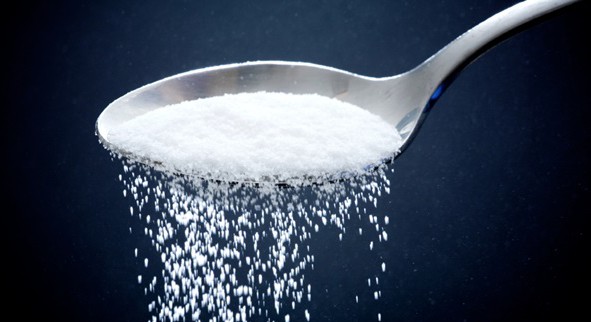
Public health scientists and a government committee working on nutritional advice are benefiting from funding from the very companies whose products are widely held to be responsible for the obesity crisis, an investigation has revealed, raising serious questions about the industry’s influence on science and public health policy.
Recipients of research funding from sugar and other related industries include members of the Scientific Advisory Committee on Nutrition (SACN), which is currently updating official advice on carbohydrates consumption, and researchers working for the Medical Research Council’s Human Nutrition Research unit (HNR).
The findings, published in the BMJ, indicate the potential for bias and conflict of interest to corrupt public health research and policy, says lead author Jonathan Gornell. And although the investigation was conducted in the UK, the report is bound to raise questions in other countries, as the findings implicate international food and drinks manufacturers.
According to the report, research carried out by members of the SACN has been supported by companies including PepsiCo, Coca-Cola, Mars and Nestlé. “From 2001 to 2012 there were 539 individual declarations of involvement with commercial organizations, including food firms, industry groups, and drug companies,” the report says. Similarly, the investigation revealed that HNR scientists received research funding and funding in kinds from companies including Coca-Cola, Mars, Nestlé, Sainsbury’s, the Institute of Brewing and Distilling, Weight Watchers International and others.
The extent of industry engagement was found to be unprecedented, with one former HNR researcher – Dr. Susan Jebb, professor of diet and population health at the University of Oxford and chair of the British government’s Responsibility Deal Food Network – accepting funding worth $2.10 million from companies such as Coca-Cola between 2004 and 2015. As principal investigator, Dr. Jebb also received a donation of $297,000 from Coca-Cola to one study she was working on.
Industry engagement in research is ‘like putting Dracula in charge of the blood bank’
Dr. Jebb contends that her work remains entirely independent. “Everything I do, whether in my research or as chair of the responsibility deal, is to try to improve public health,” she told the BMJ, saying that she is committed to “using funding from industry to support important pieces of research and to make the information from these studies available for the public good.”
Although Dr. Jebb denied being influenced by her own industry funding sources, many remain skeptical of the objectivity of industry-backed research as a general principle. Dr. Simon Capewell, from the University of Liverpool and an adviser for the group Action on Sugar, told the BBC he was “shocked” by the investigation’s findings, saying “it appears a lot of people have been seriously misled.” There would be an “inherent conflict of interest” between profits and public health, he said, adding: “It’s like putting Dracula in charge of the blood bank.”
Indeed, the BMJ report references recent research that has found evidence of pro-industry bias in some sponsored studies. For example, a 2013 study published in PLoS Medicine revealed that systematic reviews examining the relationship of sugary beverages with weight gain or obesity were five times more likely to conclude that no such relationship exists if the research had been funded by industry. An earlier analysis that looked at 206 studies on the health effects of milk, soft drinks, and fruit juices also concluded that “[i]ndustry funding of nutrition-related scientific articles may bias conclusions in favor of sponsors’ products, with potentially significant implications for public health.”
Is the sugar industry the next ‘Big Tobacco’?
Dr. David Stuckler, professor of political economy and sociology at Oxford University, told the BMJ that the engagement of companies such as Coca-Cola with the work of public health organizations “falls into the category of efforts to crowd out public regulation, to try to weaken public health by working with it.” He likened the sugar industry’s engagement in research to the nefarious efforts of the tobacco industry to mask the harms of smoking by manipulating the science.
In 1954, U.S. tobacco manufacturers jointly paid hundreds of American newspapers to publish the “Frank Statement to Cigarette Smokers”. The advertisement downplayed growing evidence of the link between smoking and cancer, and promised a variety of good-faith efforts to support unbiased research into the health effects of smoking. The public’s health would be the industry’s top concern, the statement said. Yet what followed were decades of deceit and actions that cost millions of lives.
In 2012, former dentist Cristin Couzens published a bombshell report detailing evidence that the sugar industry used ‘Big Tobacco’ tactics to deflect growing concern over the health effects of sugar. In her investigation, Couezens uncovered entire boxes of documents describing industry lobby efforts to sponsor scientific research, silence media reports critical of sugar, and block dietary guidelines to limit sugar consumption.
“[They’re] different players, but it’s the same game,” Gretchen Goldman, an analyst with the Union of Concerned Scientists, told The Daily Beast, referring to the two industries. “We’re seeing the exact same tactics that Big Tobacco was using. They’re trying to manufacture doubt in the science, they’re trying to pay their own experts to carry their talking points, and they’re doing these things with the intent to undermine public policy.”
